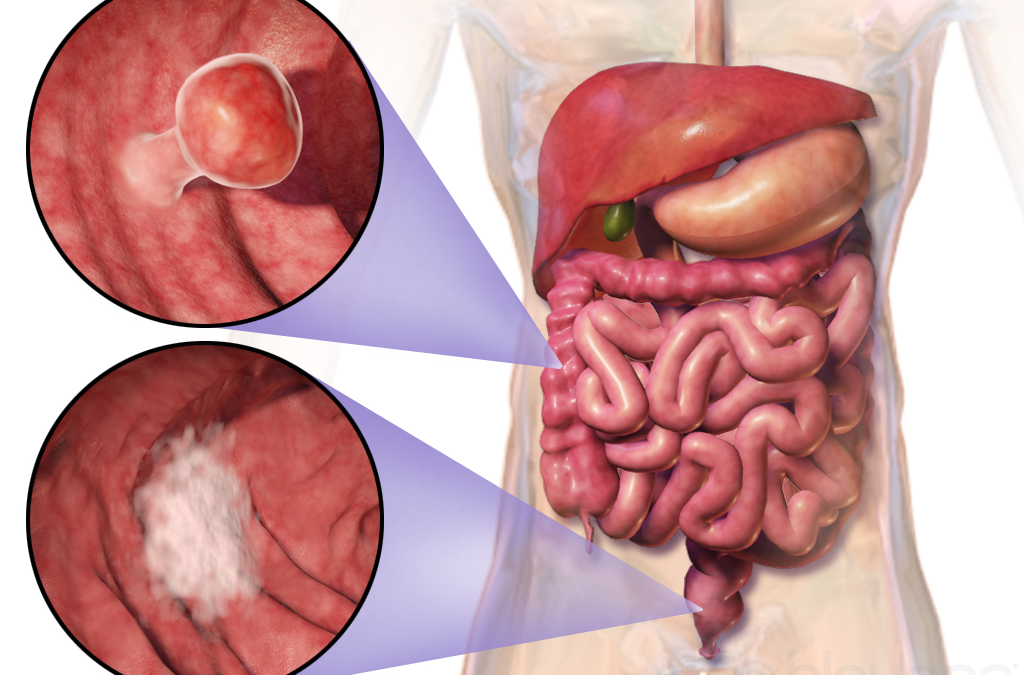Colon (colorectal) cancer starts in your colon (large intestine), the long tube that helps carry digested food to your rectum and out of your body.
Colon cancer develops from certain polyps or growths in the inner lining of your colon. Healthcare providers have screening tests that detect precancerous polyps before they can become cancerous tumor
Colon cancer is sometimes called colorectal cancer. This term combines colon cancer and rectal cancer, which begins in the rectum.
Symptoms
- A change in bowel habits, such as more frequent diarrhea or constipation.
- Rectal bleeding or blood in the stool.
- Ongoing discomfort in the belly area, such as cramps, gas or pain.
- A feeling that the bowel doesn’t empty all the way during a bowel movement.
- Weakness or tiredness.
- Losing weight without trying.
Risk Factors
Factors that may increase the risk of developing colorectal cancer include:
- age: the risk of developing colorectal cancer increases with age, with most cases occurring in individuals over 50 years old;
- family history: a family history of colorectal cancer or certain genetic conditions, such as Lynch syndrome and familial adenomatous polyposis (FAP), can increase the risk;
- personal history: individuals who have had colorectal cancer before or certain types of polyps are at a higher risk; and
- lifestyle factors: unhealthy lifestyle choices, such as a diet high in processed meats and low in fruits and vegetables, sedentary behaviour, obesity, smoking and excessive alcohol consumption, can increase the risk.
Prevention
Lifestyle changes and regular screening can help prevent colorectal cancer.
Lifestyle changes to help prevent colorectal cancer include:
- eating a healthy diet rich in fruits and vegetables
- not smoking tobacco
- keeping an active lifestyle
- limiting alcohol consumption
- avoiding exposure to environmental risk factors.
Contact your provider if you have symptoms. 961-2234, 961-2284, 961-2616, 961-2442.

